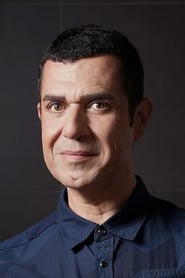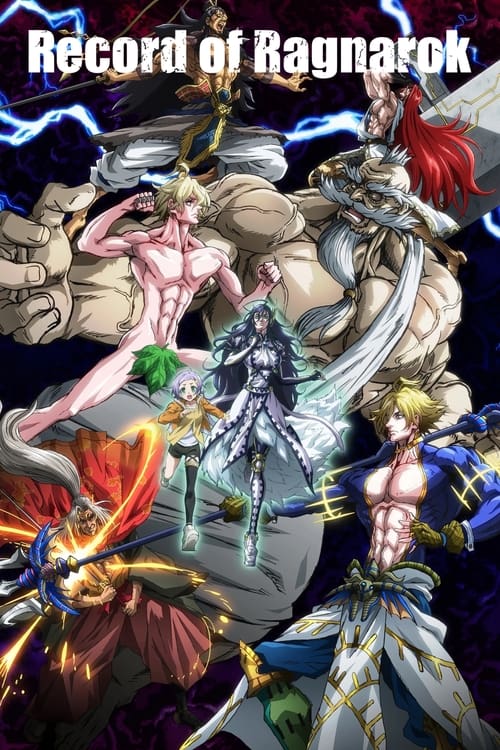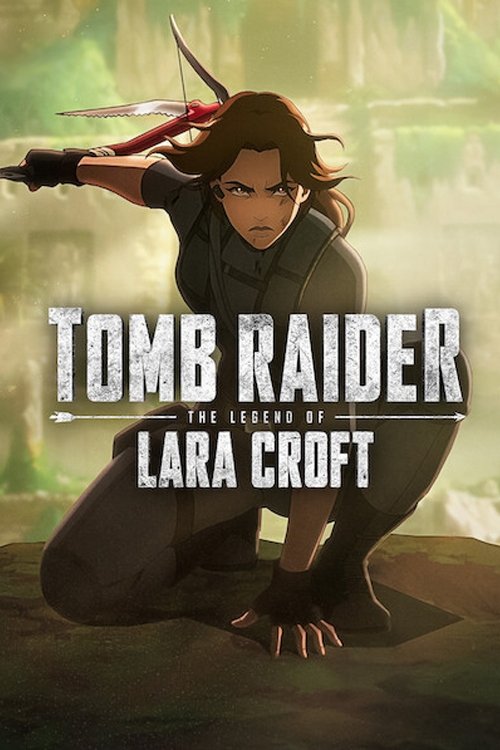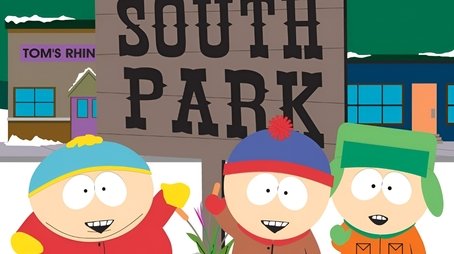
Ask Your Own Question
What is the plot?
In the opening scene of "Episode 20," the camera pans over a bustling marketplace in the heart of the city, where the vibrant colors and sounds create a lively atmosphere. The protagonist, David, is seen negotiating with a vendor over the price of fresh produce. His demeanor is tense, reflecting the weight of recent events that have left him feeling cornered. As he walks away, he receives a phone call from his sister, who is in distress, hinting at trouble brewing within the family.
The scene shifts to David's sister, Miriam, who is at home, pacing anxiously. She reveals to David over the phone that their father has been acting strangely and has been receiving threatening messages. David's concern deepens, and he decides to return home immediately to confront the situation. The urgency in his voice conveys his protective instincts, and he promises Miriam that he will handle it.
Upon arriving at the family home, David finds his father, Eli, sitting in the living room, staring blankly at a wall. The atmosphere is heavy with unspoken tension. David tries to engage Eli in conversation, but Eli is evasive and dismissive, which frustrates David. He notices a stack of letters on the table, and upon closer inspection, he realizes they are the threatening messages Miriam mentioned. David's heart races as he reads the contents, which reveal a sinister plot against their family.
Determined to uncover the truth, David confronts Eli about the letters. Eli finally opens up, revealing that he has been involved in some shady dealings that have put the family at risk. He expresses regret but also a sense of helplessness, which angers David. The emotional confrontation escalates, with David feeling betrayed and Eli pleading for understanding. This pivotal moment sets the stage for David's decision to take matters into his own hands.
The next sequence takes place at a dimly lit bar where David meets with an old friend, Amir, who has connections to the underground world. David explains the situation, and Amir offers to help him gather information about the threats. The camaraderie between the two is palpable, but there is an underlying tension as David grapples with the moral implications of getting involved in dangerous territory. Amir's enthusiasm contrasts with David's hesitance, highlighting David's internal conflict.
As the night progresses, David and Amir stake out a location where they believe the threats are originating. They observe a group of men exchanging information in hushed tones. David's heart pounds as he realizes the gravity of the situation. He decides to approach them, driven by a mix of fear and determination to protect his family. The confrontation is tense; David demands answers, and the men respond with hostility. A fight breaks out, and David, fueled by adrenaline, manages to hold his own despite being outnumbered.
After the altercation, David and Amir regroup, nursing their wounds. They piece together that the threats are linked to Eli's past dealings, and David's resolve strengthens. He vows to confront the individuals behind the threats directly, knowing that this could put him in even greater danger. Amir warns him about the risks, but David's protective instincts override his fear.
The following day, David devises a plan to confront the main antagonist, a man named Rami, who has been orchestrating the threats. He gathers evidence and prepares to expose Rami's operations. The tension builds as David approaches Rami's hideout, a rundown warehouse on the outskirts of town. The atmosphere is thick with anticipation as David steels himself for the confrontation.
Inside the warehouse, David finds Rami and his men engaged in a meeting. The confrontation is explosive; David accuses Rami of threatening his family and demands that he back off. Rami, initially amused, quickly turns hostile, revealing his own connections and the lengths he will go to protect his interests. The standoff escalates into a physical confrontation, with David fighting fiercely against Rami's men. The choreography of the fight is intense, showcasing David's determination and desperation.
As the fight reaches its climax, David manages to gain the upper hand, but not without sustaining injuries. He confronts Rami one-on-one, and in a moment of vulnerability, David reveals the impact of Rami's actions on his family. This emotional appeal catches Rami off guard, and for a brief moment, the tension shifts. Rami, realizing the potential fallout, reluctantly agrees to back off, but not without a warning that the threat may not be over.
The episode concludes with David returning home, battered but resolute. He shares the news with Miriam and Eli, who are both relieved yet shaken by the events. The family embraces, but the underlying tension remains, hinting at unresolved issues and the possibility of future threats. David's internal struggle is evident as he grapples with the consequences of his actions, setting the stage for further developments in the series.
🔥 Trending TV Shows Now
Browse All TV Shows →What is the ending?
In the ending of "Rosh Gadol," Season 4, Episode 20, the main characters face the consequences of their choices. The episode culminates in a tense confrontation that leads to significant revelations and emotional resolutions. Relationships are tested, and the characters must confront their pasts and the impact of their decisions on their futures.
As the episode unfolds, we see the characters grappling with their emotions and the fallout from previous events. The tension builds as they come together for a final confrontation, where secrets are revealed, and alliances are tested. By the end, some characters find closure, while others are left with unresolved issues, setting the stage for future developments.
The episode opens with a dimly lit room where the main characters gather, each carrying the weight of their past decisions. The atmosphere is thick with tension, and the air is heavy with unspoken words. As they take their seats, the camera pans across their faces, capturing the anxiety and anticipation that hangs in the air.
The first scene shifts to David, who is pacing nervously, his brow furrowed in thought. He reflects on the choices he has made, particularly regarding his relationship with Maya. His internal struggle is palpable; he knows he must confront her about the secrets that have been tearing them apart. The camera zooms in on his clenched fists, symbolizing his determination to face the truth.
Next, we see Maya sitting quietly, her eyes downcast. She is aware of the impending confrontation and feels a mix of fear and hope. The emotional turmoil is evident as she recalls the moments that led them to this point. The scene shifts to her memories, showing flashbacks of happier times with David, contrasting sharply with her current state of uncertainty.
As the characters begin to speak, the dialogue is charged with emotion. Eli, another key character, steps forward, attempting to mediate the situation. His voice trembles slightly, revealing his own vulnerabilities. He tries to bridge the gap between David and Maya, but the tension escalates as old grievances resurface. The camera captures the intensity of their expressions, highlighting the stakes of their confrontation.
In a pivotal moment, David finally confronts Maya about her past actions that have caused a rift between them. The room falls silent as he lays bare his feelings of betrayal and hurt. Maya, visibly shaken, responds with her own truth, revealing her motivations and the fears that drove her decisions. The emotional exchange is raw and powerful, with close-ups of their faces capturing the pain and longing in their eyes.
As the confrontation reaches its climax, Roni, another character, enters the scene unexpectedly. His arrival shifts the dynamics, and he brings with him a revelation that changes everything. He reveals a secret that connects all of them, forcing them to reevaluate their relationships and the choices they have made. The shock on their faces is palpable, and the camera lingers on their reactions, emphasizing the weight of the moment.
The episode concludes with a series of emotional resolutions. David and Maya, after a long and painful discussion, find a tentative path toward reconciliation. They embrace, a symbol of their willingness to move forward despite the scars of their past. The camera captures the warmth of their connection, contrasting with the earlier tension.
Meanwhile, Eli and Roni share a moment of understanding, acknowledging the complexities of their friendship. They realize that their bond has been tested but ultimately strengthened through the trials they have faced together. The scene fades out as they exchange a knowing glance, suggesting a renewed commitment to support one another.
As the credits roll, the audience is left with a sense of hope and uncertainty. Each character's fate is intertwined, and while some have found closure, others are still on their journey of self-discovery. The episode ends with a lingering question about the future, leaving viewers eager for what lies ahead in their stories.
Is there a post-credit scene?
In "Episode 20" of "Rosh Gadol," there is indeed a post-credit scene that adds an intriguing layer to the episode's conclusion.
As the credits roll, the screen fades back in to a dimly lit café, where the atmosphere is thick with tension. The camera pans slowly across the room, revealing a few patrons lost in their own worlds, but it quickly focuses on a corner table. Here, we find two characters who have been at odds throughout the season: Yael and Amir.
Yael, her expression a mix of determination and vulnerability, stares intently at Amir, who appears conflicted, his brow furrowed as he wrestles with his emotions. The air is charged with unspoken words, and the silence between them feels heavy.
Yael finally breaks the tension, her voice steady but laced with urgency. "We need to talk about what happened," she says, her eyes searching Amir's for understanding. Amir shifts in his seat, the weight of their shared history evident in his posture. He takes a deep breath, clearly grappling with the consequences of their past decisions.
As they engage in a heartfelt conversation, the camera captures the flickering candlelight between them, symbolizing the fragile hope of reconciliation. The scene is punctuated by close-ups of their faces, revealing the depth of their emotions--fear, regret, and a glimmer of hope for a new beginning.
The post-credit scene ends with a lingering shot of their hands inching closer together on the table, suggesting a tentative step towards healing. Just as their fingers almost touch, the screen fades to black, leaving viewers with a sense of anticipation for what might come next in their complicated relationship.
This moment encapsulates the themes of redemption and connection that have been central to the season, providing a poignant and thought-provoking conclusion to the episode.
What significant event occurs between the main characters in Episode 20 that changes their relationships?
In Episode 20, a pivotal confrontation occurs between the main characters, where long-standing grievances are aired. This emotional showdown leads to a deeper understanding of each character's motivations and fears, ultimately reshaping their relationships.
What role does the setting play in the climax of Episode 20?
The setting in Episode 20, particularly the abandoned warehouse where the climax unfolds, serves as a metaphor for the characters' emotional states. The dim lighting and eerie silence amplify the tension, making the confrontation feel more intense and desperate.
Which character experiences a major turning point in Episode 20, and what triggers it?
In Episode 20, Sarah experiences a major turning point triggered by a shocking revelation about her family's past. This discovery forces her to reevaluate her identity and her relationships with the other characters, leading to a powerful moment of self-acceptance.
How does the character of David evolve throughout Episode 20?
Throughout Episode 20, David grapples with his past decisions and their impact on his current life. His internal struggle is depicted through flashbacks and intense dialogues, showcasing his desire for redemption and the burden of guilt he carries.
What is the significance of the final scene in Episode 20 for the character arcs?
The final scene in Episode 20 is significant as it encapsulates the growth of the characters. Each character reflects on their journey, and the scene serves as a poignant reminder of the choices they have made, setting the stage for future developments in their arcs.
Is this family friendly?
"Rosh Gadol," Season 4, Episode 20, contains several themes and scenes that may be considered objectionable or upsetting for children or sensitive viewers.
-
Emotional Turmoil: The episode features intense emotional conflicts among family members, which may be distressing for younger viewers. Characters experience feelings of betrayal, sadness, and anger that are portrayed in a raw and impactful manner.
-
Family Struggles: There are scenes depicting familial discord, including arguments and confrontations that could be unsettling for children who may not understand the complexities of adult relationships.
-
Mature Themes: The episode touches on themes of loss, regret, and the consequences of past actions, which may be heavy for younger audiences to process.
-
Conflict Resolution: The resolution of conflicts may involve difficult conversations and emotional confrontations that could be challenging for sensitive viewers to watch.
-
Visual Tension: Certain scenes may include visual tension, such as close-ups of distressed characters, which can amplify the emotional weight of the narrative.
Overall, while the show does not contain explicit content, the emotional depth and complexity of the situations presented may not be suitable for all children or sensitive viewers.


















